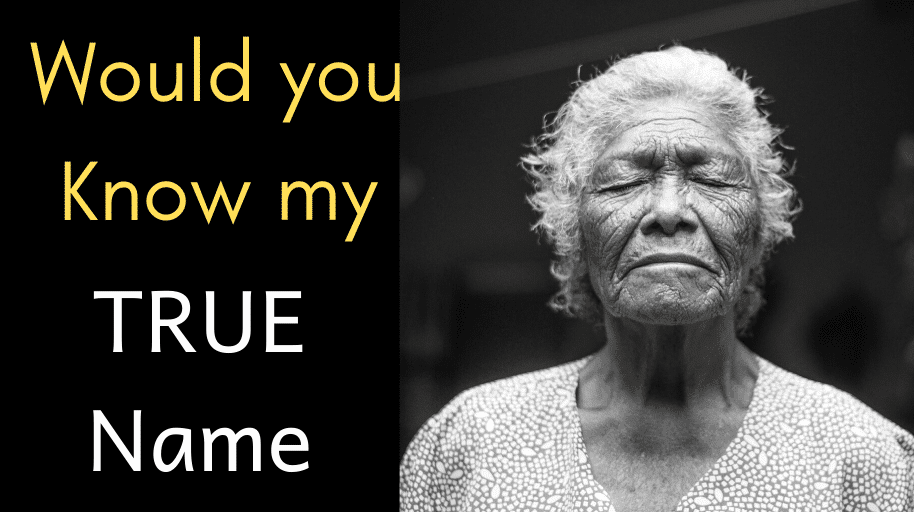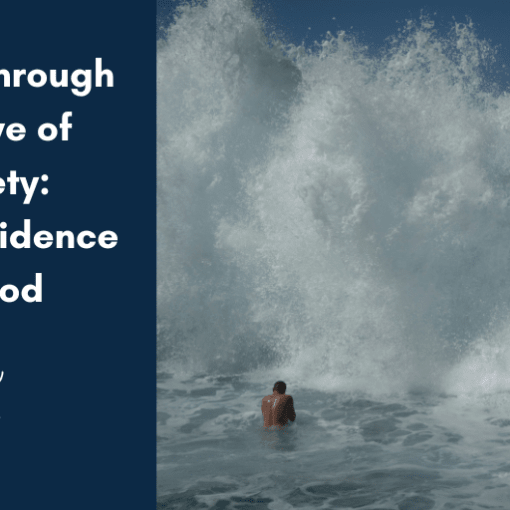Many live under a false identity, a name used for the convenience of others, but when we learn their true name connection happens. So what’s your real name?
She said what her name was I knew that it wasn’t her real name.
Now that caught my attention because in front of me was a lady of apparent Indian descent. Being the curious character I am, I pushed a little further, and she told her ‘real’ name.
I call her by her real name now. Connection.
I understand why so many people with foreign names adopt a new name. Its called convenience. It’s easier for others to remember, to speak, and I suppose it is a statement of a desire to fit in.
I’ve been carrying out this experiment for a little while now. Wherever I go regularly, and I see the same person serving me like at the petrol station, I ask them their name. If I think it’s not their real name, then I push a little further, ask them their real name, and endeavor to remember it for the next meeting.
Some of the Asian names are difficult to say because of all the tonal inflections, but just because it might be challenging to pronounce does not give me a license to ignore their true name.
My true name
One person used the words ‘True name’ to describe the name they had been given.
My brain leaped at the word ‘True’ because it’s opposite to the word ‘False.’
Maybe it is a false identity that we are dealing with — living under a false name.
True self/ false self.
Do we want to know something false?
When I recently asked someone how it felt that I wanted to know their name, they said it felt good, nice, and special to think that someone wanted to ‘put the effort’ into knowing their name.
I suppose they felt welcomed and valued.
Welcoming the foreigner
In God’s economy, there are no foreigners. God knows everyone and knows them all by name. Their true name.
Explicit instructions were given as part of the law.
“When a foreigner lives with you in your land, don’t take advantage of him. Treat the foreigner the same as a native. Love him like one of your own. Remember that you were once foreigners in Egypt. I am God, your God. Leviticus 19:33, 34
Welcoming the foreigner may be as simple as getting to know the true name of the person who mows your lawn or serves your food at the Dunkin Donuts.
Lonely world
We live in an increasingly lonely world, but it doesn’t have to be that way. The foreigner maybe someone you meet every day but is disconnected at a heart level of connection.
It’s often inconvenient to stretch out and be vulnerable.
To open your arms, metaphorically, and embrace the other means your own heart is being exposed to the potential of rejection. A behavior of love being misconstrued as an act of intrusiveness.
When you learn their name
Jim Wallis, in his book Faith Works, tells the story of a lawyer, Dale Recinella, who gets involved in helping out at a local Soup Kitchen.
About twenty years ago, I started helping out at the noon meal of the Good News Soup Kitchen in Tallahassee.
It was located in the city’s then worst crack/prostitution district, halfway between the State Capital and the Governor’s Mansion. I showed up every day in my three-piece suit to help from 11:00 a.m. until 1:30 p.m.
The staff assigned me to “door duty.” That meant my job was to ensure that the street people are lining up to eat waited in an orderly fashion. Every day, I stood at the door for an hour, chatting with the street people waiting to eat.
Before I came to Good News, “street people” was a meaningless term. It defined a group without defining anybody in particular. From the comfort of my car, my suburban home, and my downtown law office, street people were just “those people out there somewhere.”
Then, one day, an elderly woman named Helen came running to the Good News door. A man was chasing her, threatening to kill her if she didn’t give him back his dollar.
“Tell him he can’t hit me here ‘cuz it’s church property!” she pleaded.
In true lawyer fashion, I explained that Good News is not a church, but he still couldn’t hit her. After twenty minutes of failed mediation, I purchased peace by giving each of them a dollar.
That evening, I happened to be standing on the corner of Park and Monroe, a major intersection a few blocks from the State Capital and outside my law office. In the red twilight, I spied a lonely silhouette struggling in my direction from Tennessee St.
“Poor street person,” I thought, as the figure inched closer.
I was about to turn back to my own concerns when I detected something familiar in that shadowy figure. The red scarf. The clear plastic bag with white border. The unmatched shoes.
“My God,” I said in my thoughts, “that’s Helen.”
My eyes froze on her as she limped by and turned up Park. No doubt, she would crawl under a bush to spend the night. My mind had always dismissed the sight of a street person in seconds. It could not expel the picture of Helen.
That night, as I lay on my $1500 deluxe, temperature-controlled waterbed in the suburbs, I couldn’t sleep. A voice in my soul kept asking,
“Where’s Helen sleeping tonight?”
No street person had ever interfered with my sleep before. But the shadowy figure with the red scarf and plastic bag had followed me home.
I had made a fatal mistake.
I had learned her name.
Let’s put an end to fraudulent living and get to know each other’s names, their true names. As we embrace the ‘foreigner,’ we might just learn something about our name and the identity we have.
Quotes to consider
- ‘An embrace involves always a double movement of opening and closing.
I open my arms to create space in myself for the other. The open arms are a sign of discontent at being myself only and of desire to include the other. They are an invitation to the others to come in and feel at home with me, to belong to me. In an embrace I also close my arms around the others – not tightly, so as to crush and assimilate them forcefully into myself, for that would not be an embrace but a concealed power-act of exclusion; but gently, so as to tell them that I do not want to be without them in their otherness. I want them in their openness. I want them to remain independent and true to their genuine selves, to maintain their identity and as such become part of me so that they can enrich me with what they have and I do not’. Judith M Gundry-Volf, Miroslav Volf. A spacious heart: essays on identity and belonging. - Loneliness is the first thing which God’s eye named not good. John Milton
- The heart of spirituality is connection. When we believe in that inextricable connection, we don’t feel alone. Brené Brown
- There is a soul yonder which is lonely.” And he added, deep in his own mind, “I owe him a visit.” Les Miserables Victor Hugo
- The spiritual life is a life of engagement and connection, not a life of isolation and alienation. But healthy spirituality involves a particular way of relating to others and to the world. It involves relating in love. David G. Benner
Questions to answer
- Whom do you know that might have a different name to the one they use with you?
- What stops us from asking someone their name?
- Who is a ‘foreigner’ to you?
Further reading
Barry Pearman
Image Unsplash Cristian Newman





